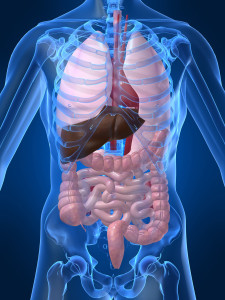
1. Eat a High-Fiber Diet
A balanced diet that is high in both soluble and insoluble fiber helps to keep food moving through your digestive tract. A high fiber diet can also help maintain bowel health by lowering your risk for diverticular disease of the colon. Fruits, vegetables, and whole grains are good sources of insoluble fiber, while oats, beans, and lentils are rich in soluble fiber.
2. Limit Fatty Foods
Unlike dietary fiber, fatty, deep-fried foods slow down your digestive process. These foods can also prompt the overproduction of stomach acid, increasing your risk of gastric reflux or gastroesophageal disease.
3. Take More Time to Chew
Chewing your food slowly increases the amount of digestive enzymes released in your mouth, allowing for better overall digestion of. Chewing too fast on the other hand makes your food more difficult to digest and can cause gas or indigestion. Aim for about 30 chews for every mouthful you take.
4. Incorporate Probiotics into your Diet
Probiotics consist of the same healthy bacteria that line our digestive tracts. These bacteria help prevent indigestion and bloating by breaking down remaining food as it moves through our digestive tract.
5. Stay Hydrated
Drinking plenty of water ensures that nutrients from the food we eat are properly digested and absorbed. Try to drink at least 8 glasses of water per day, and even more if you are active.
6. Exercise Regularly
Regular exercise promotes a healthy digestive system by speeding up the movement of food through your large intestine. Exercise also helps to boost your energy level throughout the day and enhances metabolic activity.
7. Eat at the Right Time
Aim to have your meals and snacks consistently at around the same time each day. Eating smaller, more frequent meals can also improve digestive health by maintaining consistent blood sugar balance and metabolic activity.
8. Manage Stress
When we suffer from stress, the digestive system is one of the first parts of our body to be affected. Stress can cause spasms of the esophagus and increased stomach acid production, a precursor to more serious digestive conditions. Try to reduce stress in your daily life through relaxation and exercise.
9. Sleep
The amount of sleep we get can affect our digestive health. Like the rest of our body, our digestive system needs time to rest and relax. Eating within two hours before going to bed can throw off your digestive tract and disrupt your sleep. Sleeping regular hours with consistent duration can help your digestive system function more effectively.
10. Get Screened for Colon Health
A regular screening colonoscopy is one of the most important ways to maintain GI health if you meet certain age and risk factor criteria. The colonoscopy examination helps to detect and prevent colorectal cancer. Normally, adults are recommended to get their first colonoscopy at the age of 50. African Americans should receive their first colonoscopy at the age of 45. People who have a family history of colon cancer should get their first colonoscopy 10 years prior to the age that their family member was diagnosed with colon cancer or by age 40. After your first screening, a repeat colonoscopy should be performed every 10 years, or sooner if polyps (abnormal growths) are detected.
If you would like to learn more about GI health in the new year, please give us a call at 310.271.1122 or fill out our online Request an Appointment form to schedule your consultation.


